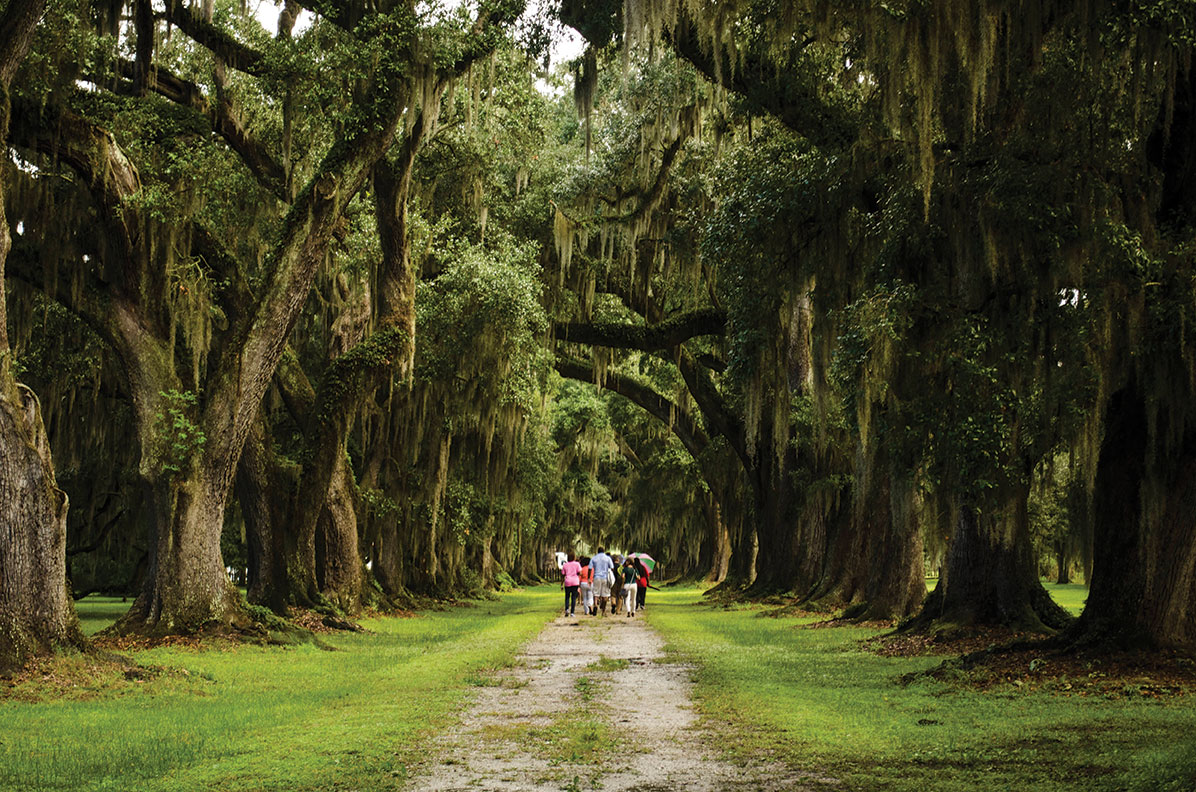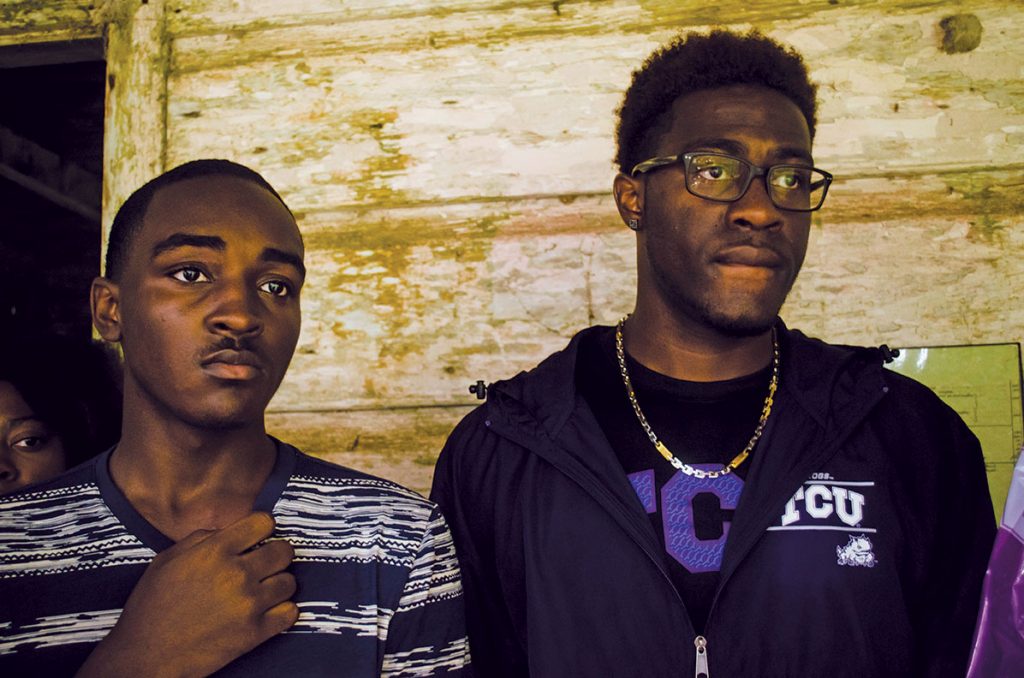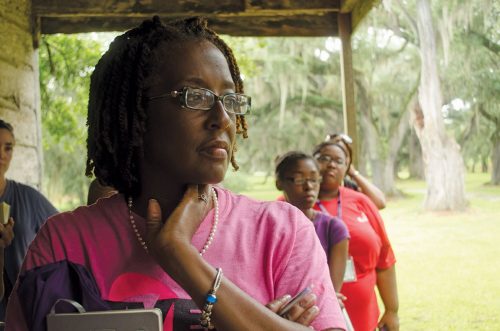The Atlantic Slave Trade Bus Tour
How a cultural tour connected the past with the present.

The Atlantic Slave Trade Bus Tour
How a cultural tour connected the past with the present.
We have to do with the past only as we can make it useful to the present and the future.
The life of the nation is secure only while the nation is honest, truthful and virtuous.
Two quotations from the world-famous 19th-century author and abolitionist Frederick Douglass, who was born into slavery, illustrate my journey into America’s painful history. In my junior year, I was among the 24 students on the four-day Atlantic Slave Trade Bus Tour that was organized by the TCU Office of Cultural, Community and International Services. I wanted to better understand people from different periods of history, and the words of the famous orator and statesman summarize my experience on that trip two years ago in October.

Takyra Morgan. (photo by Amy Peterson)
One of the first stops after a long bus ride from North Texas to southeast Louisiana was Evergreen Plantation on the west bank of the Mississippi River, between New Orleans and Baton Rouge. The legendary sugarcane estate, featuring many buildings with historic designations, is one of the most intact plantations in the South. I read actual property record books, which have the purchase, sale and trade-in value of every owned black man, woman or child. (Manual labor and breeding capabilities determined the enslaved person’s price.)
I saw cabins where slaves and indentured servants lived in close confinement and squalor. The tiny spaces were a sharp contrast to the preserved main house, a Greek Revival-styled manor, which epitomized luxury and leisure. I walked through the kitchens where people worked in packed conditions and unrelenting heat. I touched centuries-old oak trees against which many people were whipped or lynched. I could almost hear the voices of those who died from exhaustion, execution or a broken heart. Voices of the tired and poor … the huddled masses yearning to breathe free, and yet, voices of strength, faith and love.

Students walk down the path of the slave quarters at Evergreen Plantation.
In the Lower Ninth Ward of New Orleans, more than 10 years after Hurricane Katrina, I saw some of the areas hit hardest. Ann Duplessis, a former state senator in Louisiana, showed us where the city’s levees broke, submerging entire neighborhoods. I saw empty lots where families once lived in sturdy homes. Some dilapidated homes still stand, marked with the number of dead on the door, sobering reminders of the fragility of life. I felt the lingering presence of Katrina in the area.
And yet, I felt something more: Resilience in rebuilding, unity through fellowship and perseverance through time. As part of the trip, we helped plant fruit trees in a guerrilla garden. These community gardens are an essential part of rebuilding, for they bring people together in a place where life persists.
At the end of the trip, we experienced New Orleans’ French Quarter. We danced to jazz on Bourbon Street. We ate delicious food such as beignets, gumbo, jambalaya and étouffée. We watched age-old traditions unfold on streets, such as wedding marches. We celebrated in the ambiance of the quarter, or Vieux Carré. We admired the art and architecture, the diverse and historical culture. We soaked in the camaraderie of the people.

24 students took the Atlantic Slave Trade Bus Tour over fall break in 2016.
We also acknowledged the evidence of the Atlantic Slave Trade all around us. At Tulane University’s Amistad Research Center, I learned that the Omni Hotel that I walked past the night before was once the central hub of the slave market. I understood that the quarter’s ports, with its harbor of freight ships, once disembarked newly enslaved people for public sale.
I can’t share everything about that cultural journey into America’s history. But as Douglass recommended, let us be truthful, as a nation, about where we came from and virtuous about where we go. Only then will the past be useful to the present and the future.

Your comments are welcome
4 Comments
Appreciate the sharing of this horrific story. Mankind can be so cruel to its’ fellow man if given the chance. We must never allow such injustice again.
Thank you so much, I appreciate it.
Is another tour planned? I’d love to go on something like this.
Hi Jamie, these tours have been going for about three straight years, maybe more as far as I know. You can find out by contacting the Office of Inclusiveness and Intercultural Services. https://www.facebook.com/TCUDiversity/?fref=ts
Related reading:
Features
Our Marching Band, the Pride of TCU
In its 111th year, the band still practices hard, relies on teamwork and performs with passion.
Features
Kelubia Mabatah’s Comeback
Former TCU tennis player forges on after a traumatic brain injury.